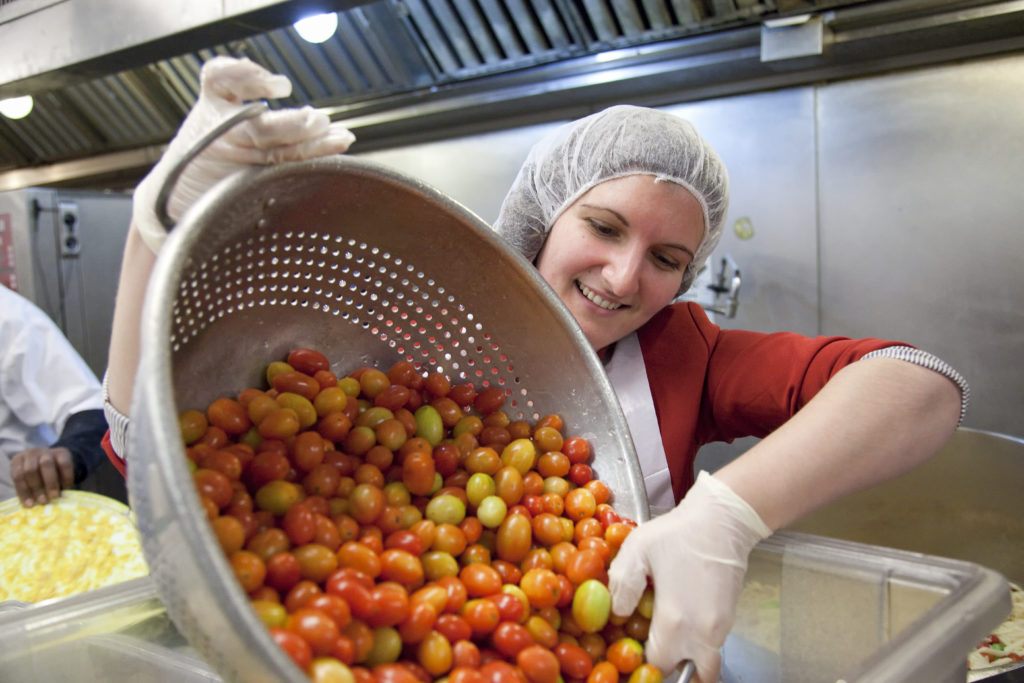
DC Central Kitchen combats hunger with job training
By AdministratorDC Central Kitchen, our Q3 Poverty & Health beneficiary, tackles hunger and poverty through food distribution, food recycling, and job training using a social enterprise model. Three wards in Washington D.C. have been clearly identified as food deserts, or areas where access to nutritious food options is limited. These areas have been studied by public health officials based on the statistical realities of population, average income, grocery store per resident, and SNAP benefits.
D.C. Central Kitchen distributes 5,000 meals every day at little or no cost to 80 nearby homeless shelters, transitional homes, and nonprofit organizations. In an effort to not waste food, D.C. Central Kitchen also has a Food Recycling program to turn tons of leftover, surplus food into thousands of balanced meals every day. However, it is their Culinary Job Training program that has shown amazing results.
The Culinary Job Training, or CJT, program prepares unemployed men and women, including those who were homeless or previously incarcerated, for careers in the food service industry. The CJT program runs for 14 weeks. During that time, students receive lessons in basic culinary skills, job readiness skills and self-empowerment. After completing a month-long internship, students are provided with job placement assistance. Since its creation in 1990, the CJT program has helped nearly 1,400 individuals. This month, D.C. Central Kitchen celebrates the graduation of their 100th CJT class.
D.C. Central Kitchen often employs CJT graduates to work in other program areas, including the School Food Program. This program serves 4,300 healthy, locally-sourced meals to 2,600 low-income DC schoolchildren during the school year. Although local schools are now closed for the summer, staff are still busy. Half of the employees are preparing healthy meals and snacks for 30 summer camps and youth programs. The other half are processing, freezing, and storing produce from local farms. Kids, who otherwise may face hunger, have access to nutrition and D.C. Kitchen staff have stable summer employment.
CJT graduates have also gained employment in top positions of the food service industry. 2013 CJT graduate Abby Wood is now working in the kitchen of the Eisenhower Executive Office Building, which houses the agencies that make up the Executive Office of the President. For many, the CJT program simply offers the opportunity to start a new life. Former criminals who’ve graduated from the CJT program have since found honest employment. This, in addition to other factors such as housing, behavior, and family relationships, have allowed these individuals to permanently turn away from crime.
Foundation Beyond Belief is proud to support DC Central Kitchen and its evidence-based programs.
You can learn more about DC Central Kitchen’s programs through Facebook, Twitter, and Pinterest.
DC Kitchen received a grant of $9,920 from FBB for Q3 2015.
Image credit: Ezra Gregg
